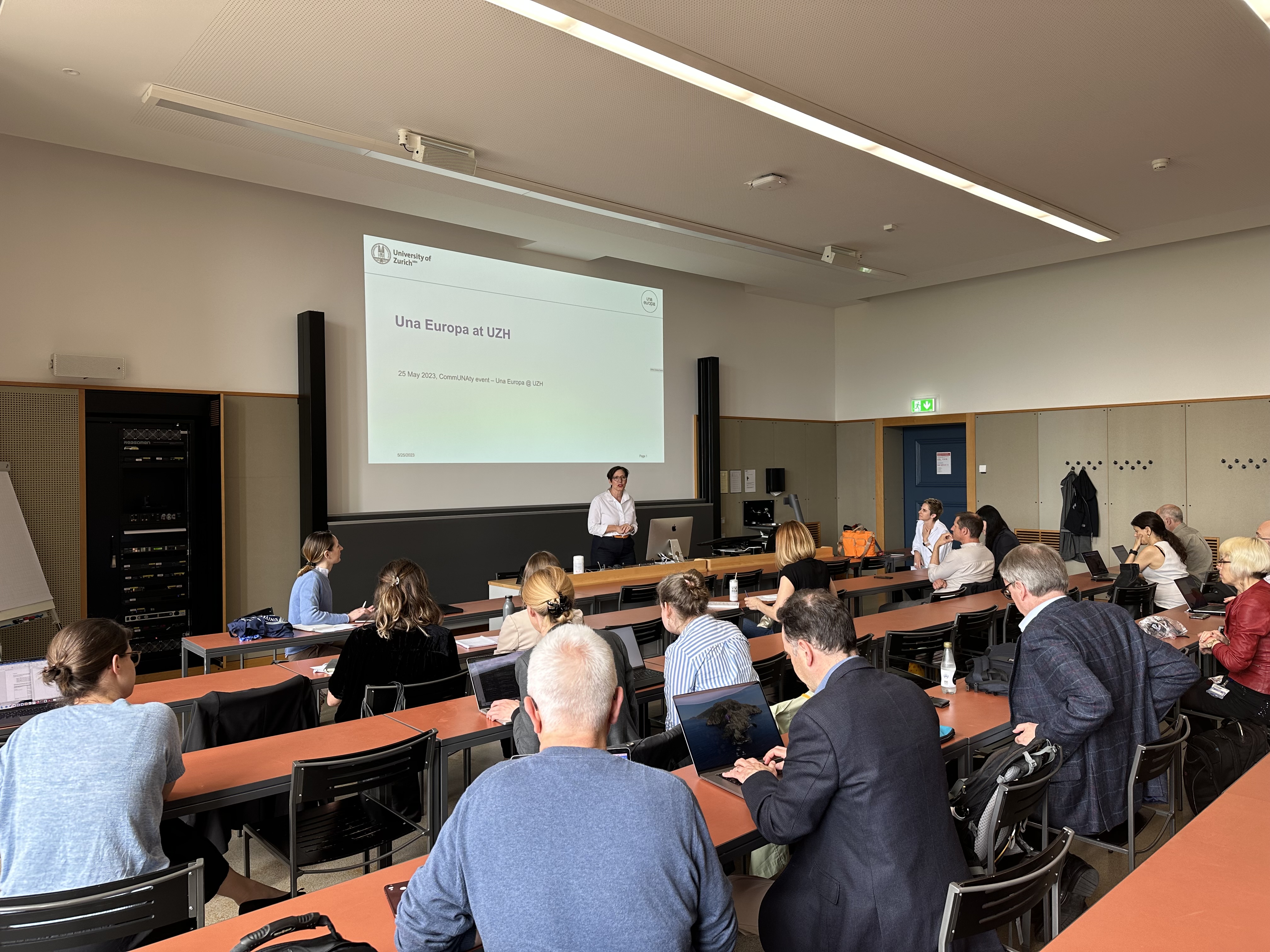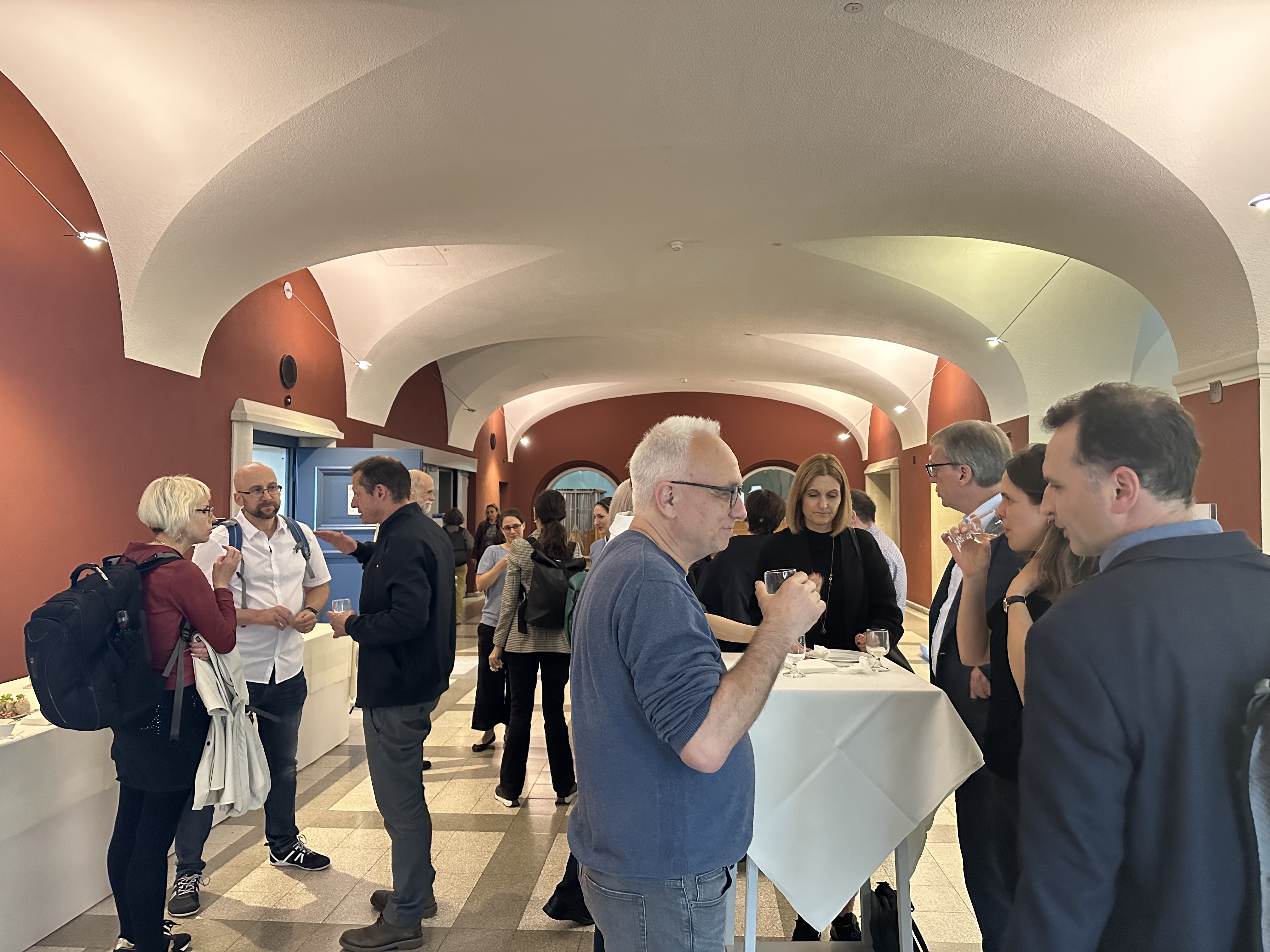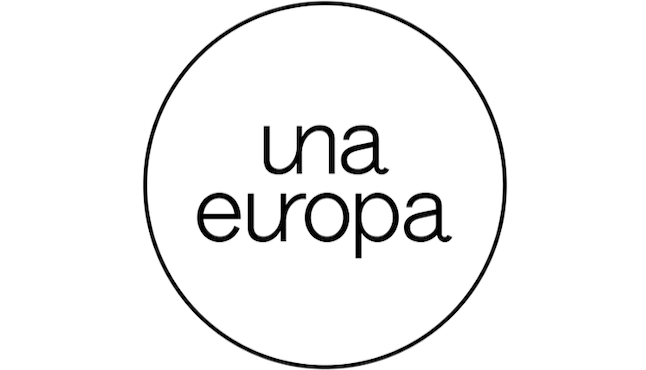One Year of Una Europa Membership – A Glance at What Has Been Done So Far
This month, the University of Zurich celebrates its one-year anniversary of joining the European University Alliance Una Europa. In this context, the Una Europa Community at the University of Zurich (“CommUNAty”) came together to look back on this first year of membership.

Gabriele Siegert, UZH Deputy President and member of the Una Europa Board of Directors, opened the gathering by emphasizing the benefits that Una Europa membership brings to the University of Zurich. The alliance provides a great opportunity for the University of Zurich to be a vital part of EU developments and innovations, especially relating to the European Higher Education and Research Area. Una Europa is a strong driver for internationalization at UZH, and builds synergies in education, research, and innovation with strong and like-minded partners. The membership in Una Europa also demands a strong commitment university-wide, and therefore priorities for the University of Zurich within Una Europa have been set.
One of these priorities is the development of new Joint Innovative Formats in education and to join already existing teaching formats of Una Europa. One such format is the Joint Bachelor of Arts in European Studies (BAES), which the University of Zurich plans to join. Students joining in this unique study program will not only learn about Europe, but also experience, live, and grow in an international setting provided by the participating Una Europa partners.
Another international learning opportunity that opened up to UZH students is the Una Europa One Health Summer School hosted this year at the Una Europa partner KU Leuven, with which UZH recently signed a strategic partnership agreement. In addition to one UZH student participating, UZH teaching staff will also contribute to the Summer School modules taking place between July and August in Leuven.
In the area of research, matchmaking events will be organized for researchers to find matching funding opportunities and to develop joint research and innovation collaborations with peers from Una Europa partner universities, especially in the 6 multidisciplinary priority focus areas of the Alliance: Cultural Heritage, Data Science and Artificial Intelligence, Europe and the World, Future Materials, Sustainability and One Health.
Although UZH, unlike most other Una Europa partners, does not have access to EU funds and cannot participate in EU projects as a full member, there are opportunities for financial support for Una Europa activities: This may be through Staff Mobility within the Swiss-European Mobility Programme or through funding lines by UZH Global Affairs (UZH Global Strategy and Partnerships Funding Scheme) and UZH Teaching Fund ULF (funding line global_innovation). Una Europa plans to open their Seed Fund call, for which researchers from UZH will be eligible, later this year.

The next big Una Europa event will be the General Assembly in June in Leiden, where UZH researchers, professional staff and students will exchange ideas and develop new formats together with their counterparts from other Una Europa universities.
Leslie Reinhard

